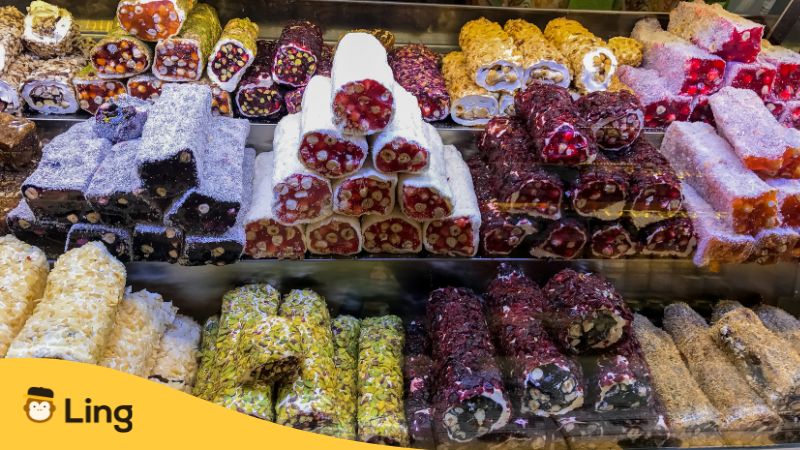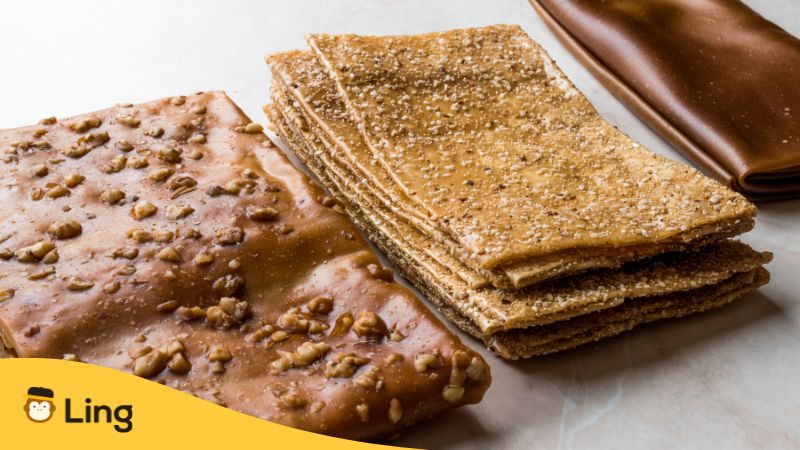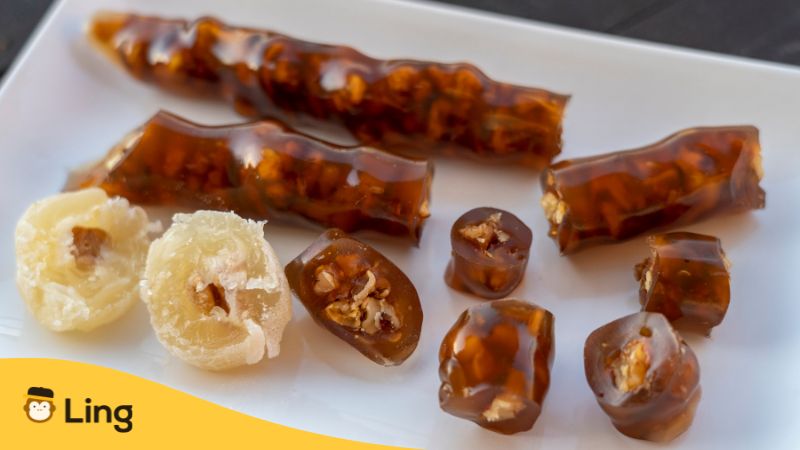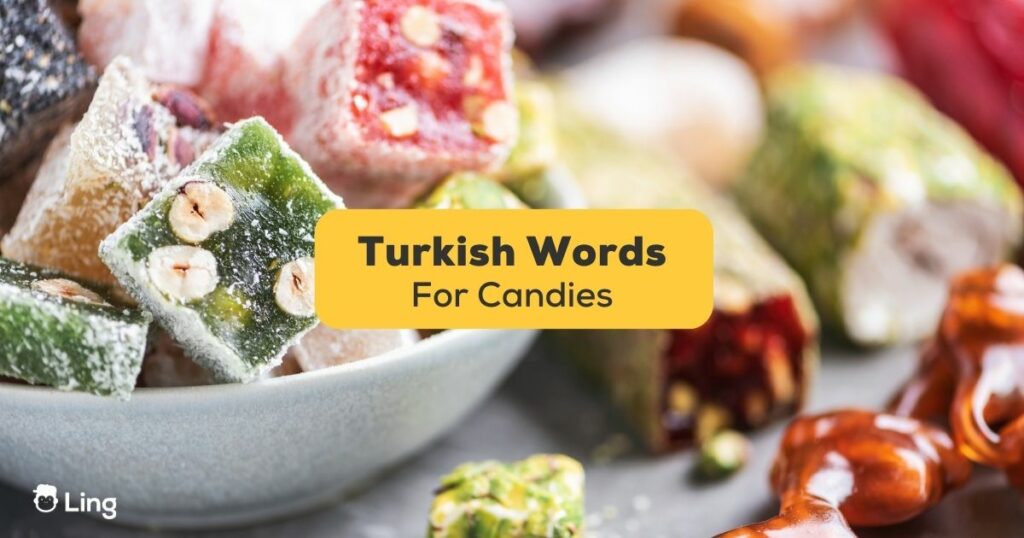If you’re getting close to the end of your Turkey trip and looking for some souvenirs for your family and friends back home, I’ve come up with a great idea: traditional Turkish candies!
I think it would be sweet to try candies from a different country. There are many traditional candies to choose from, such as Turkish delights, almond candies, walnut sausages, and more!
So, in today’s blog post, you’ll learn some Turkish words for candies and discover the Turkish side of sweet treats! But if you want to learn Turkish from zero, you can also check out the Ling app after reading this post.
Turkish Words For Candies
Before we get into traditional candies, let’s take a quick look at the Turkish words for candies and their English translations. If you wish to learn the Turkish language, make sure to download the Ling app from the Play Store or App Store for free as well!
Traditional Turkish Candies
Traditional Turkish sweets date back to Ottoman cuisine. For example, Turkish delight (lokum) is believed to have been present in Anatolia in the 15th century. Below, I’ve listed more sweets that are as tasty as a lokum but less known by foreigners.

1. Turkish Delight (Lokum)
Turkish delight is the most popular Turkish dessert, and there’s a reason why it’s loved by everyone!
The Turkish name lokum is derived from the noun “lokma” which means a one-bite food piece. So, Turkish delight is eaten in one bite. This sweet has been made in Anatolian lands since the 15th century, but it started to be known in Europe in the 18th century thanks to a British traveler.
Originally, lokum was made from these ingredients: water, starch, honey, and molasses. But today, granulated sugar is usually used instead of honey since it is more affordable. To make lokums with different flavors, additional ingredients like rose water, lemon juice, and dried nuts are added. Lastly, they are covered with powdered sugar on top to help prevent the grains from sticking together.
In Turkish culture, lokum is often served with a cup of Turkish coffee to soften the strong taste of the coffee.
2. Almond Candy (Badem Şekeri)
Badem şekeri may be the best sweet that goes well with a glass of black tea. Though it looks like a simple and small candy, it takes hours to make. First, the almonds are scorched for an hour, and then they’re sweetened in a special pot for two more hours. Lastly, almonds are covered in a thin dragée candy coat that’s originally white, but the color changes based on the flavor.
Badem şekeri is consumed the most by Turkish people after iftar (evening meal eaten at the end of fasting) during Ramadan, which is a holy month of Islam.

3. Fruit Paste (Pestil)
Pestil is an energizing and healthy sweet in Turkish cuisine. It’s basically a fruit paste. Fruits such as grapes, figs, molasses, apricots, etc., are crushed and then cooked together with other ingredients such as water, sugar, and starch until boiling. When this fruit mix cools down, it’s made into a thin dough. As the final step, the thin slices are left under the sun to dry naturally.
4. Rock Candy (Akide Şekeri)
Akide şekeri is a traditional Turkish sweet. It’s a type of hard candy that doesn’t melt quickly in your mouth. It’s made by using very few ingredients: some water, lemon juice, sugar, and sweetener (optional to add fruity flavor) are enough to make this sweet candy.

5. Walnut Sausage (Cevizli Sucuk)
Walnuts are placed on a string and boiled a few times. After they cool down, they’re hung to dry under the sun. Instead of walnuts, other ingredients, such as pistachios, almonds, hazelnuts, etc., can be used as well. Starch can also be applied to the outside of the sausages to prevent them from sticking together.
Today, factories use glucose instead of natural molasses, since they produce this traditional sweet in large quantities. However, those factory-made products are not as popular as natural ones.
Sweets In Turkish Culture
Turkish people, especially kids, have a close relationship with candies. Distributing candies to children is a common custom on special occasions in Turkey, such as religious feasts.
For example, during Ramadan Eid, children wear their newest and most beautiful clothes and visit the neighbors’ houses door by door. They wish a Happy Ramadan to their seniors, and in return they get lots of candies and chocolates from each neighbor they visit. That’s why children walk around with a bag during feast times to keep all of their candies. It reminds one a bit of the custom of trick or treating on Halloween in Western culture.
Here’s another cultural example: When the groom’s family visits the bride’s family house with the intent of getting permission from the girl’s family for marriage, they bring a box of chocolate as a gift.
Let’s Talk Sweet!
Did you know that there’s a widely-used Turkish saying about sweets? Tatlı yiyelim, tatlı konuşalım. It means, ‘‘Let’s eat sweet so we talk sweet.’’ So, if you want to learn more sweet Turkish words and local insights into Turkish culture, check out Ling’s Turkish blog every week!



































































